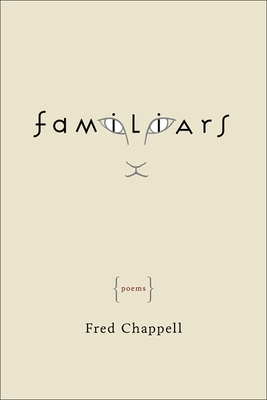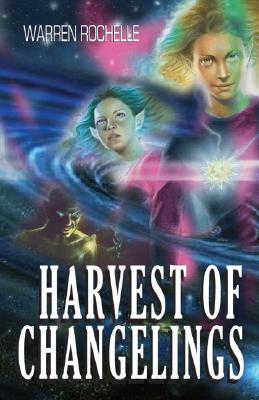Coming to Town: Fred Chappell for "Familiars", interviewed by Warren Rochelle
← Friday Quick Updates: Julia Elliott tonight, The Caroling Dead opens this weekend, A Browncoat Christmas on Sunday, three readings from Fred Chappell, crowdfunding roundup, and moreThe Hardest Part: Michael Jasper on Finders, Inc. →
Coming to Town: Fred Chappell for "Familiars", interviewed by Warren Rochelle
Posted on 2014-12-08 at 14:42 by montsamu
This Wednesday at Quail Ridge Books marks the first of three Triangle-area readings for North Carolina’s own Fred Chappell. While I personally know his work best for his short speculative fiction (particularly his “shadow” stories in F&SF) he has enchanted readers of every mode, from Southern novels, to the horrors of Dagon, poetry to prose. It is for his poems that he returns this year, for a new chapbook Familiars: Poems from Louisiana State University Press, for readings at the aforementioned Quail Ridge Books (Wednesday, December 10, 7:30 pm), Flyleaf Books (Thursday, December 11, 7 pm as part of their “Second Thursday Poetry Series & Open Mic”, with Pat Riviere-Seel), and The Regulator Bookshop (Tuesday, December 16, 7 pm). Below, author and academic Warren Rochelle reviews Familiars, interviews Chappell, and provides a brief biography as well. I hope you manage to catch (at least!) one of his readings — for myself, I should be (again, at least!) at Quail Ridge Books on Wednesday. See you there!

Interview by Warren Rochelle:
The Little Gods at Our Feet, the Mythic and the Mundane, Whimsy and Mystery and Cats, or
A Personal Essay and a Conversation with Fred
First, in the interest of full disclosure, I am an ailurophile. First, there was Osito, a Siamese mix, rescued as a kitten from a flea-ridden house. This lilac-point beast saw me through graduate school, my first post-doc job, and my first year here in Fredericksburg, at the University of Mary Washington. Then, Alex and Festus, two brothers (but not littermates, and believe me, it made a difference), from the local shelter, and a Yogi and Booboo combo, if there ever was one. Alex weighed in at 17 lbs.; Festus, about 10. Now, there is just Festus, my little godling, my familiar, the muse at my feet when I am writing, an old guy, now, almost fourteen.
Such familiars are the subjects of the poems in this slim volume of Fred Chappell’s latest verse, an extended paean to these inscrutable beings who deign to share their lives with us. He writes of creatures who are range from the mythic to the magical, the mysterious and inscrutable, the whimsical and the familiar, the companions curled at our feet. That I am only a sometime poet, and rather a writer of fantasy, means I read these poems as narratives, stories of what is both present and not, of what lies just beyond the awareness of such lesser beings as ourselves Cats are indeed fantastic and familiar.
In “Ghosts,” we are reminded that these superior felines are attuned to both the seen and the unseen: “What does Alexander see/Staring with taut fixity/Into the dusty corner there/And its eerily vacant air? Perhaps invisible Somethings flock/That barren angle of the room….” Not a single ghost, “But several who gaze and wait…,” perhaps they are his ghosts. “Us eight you squandered. One remains” (17). Just who and what are these creatures? Are they, as Fred asks in “Recognition,” “a Fairy King? A god?” (20).
Perhaps.
In “Ritual,” we are reminded that they exist in both this world and others, that they are creatures of great mystery and ancient secrets, that what we see is only part of who and what they are. They have been sworn “To hold in closest secrecy/[Their] role in human history/And [their] books of forbidden lore…” and that they will only disclose to us, their humans just a little. Their dialects will remain secret; that they only suffer the names we give them, as “the secret name/Of any feline wild or tame” will not be spoken (30-31).
But, as Fred also reminds us, these familiars of witches, these creatures of folk and fairy tale, are our companions. Such is Paisano, whose story is told in “Security,” he watches over his farm, he keeps it safe: “He notes the flights of swallows, songs of wrens;/He counts the robins, bobwhite, and the quail,” and he is “Alert for any sound disturbing the hens … Paisano is on the job” (8). These beautiful, sensual creatures beguile us, they watch over us, they despair of our clumsiness and our ever-failure to truly understand. Chappell “presents cats as personalities, cats as art objects and historical figures, cats as reflections of human temperament… The cats in Familiars are alert and affectionate, equal parts cherished friends and unknowable mysteries” (back cover) and …
My own familiar has just, as I knew he would, come into my study to demand my attention. I’m typing this with one hand as the other holds Festus the Bestus against my chest. He is purring loudly and, from time to time, rubbing his nose against mine…
This seems like a good place to turn to the poet himself with some questions about the poems and cats.
Q: Many of these poems are about, of course, about your own cats with whom you and Susan have shared your lives. I can imagine in your living room, the title character of “Emilia Reveal’d,” who “flows into the room/With confident majesty/That all admire her aplomb/And unforbidding gravity” (4). You and Susan, as I am, are cat people. But what does that mean? Are cat people that different from dog people? What does choosing one companion animal over the other—or being chosen by one or the other—say about the humans involved?
Susan and I are in favor of dogs as well, but our living sites have never been amenable to keeping dogs. We like dogs to be outdoors and that has not been possible.
Q: I have read lately, in more than one article, that cats don’t really love us. Do you agree? Clearly we love them.
Those who say cats don’t really love us mean that they have found cats who don’t really love them. I have met thousands of women in my life, but only the tiniest few have loved me. This doesn’t mean women are incapable of love.
Q: Cats and writers—any thoughts on this long established relationship? On cats as an idea?
Cats and writers: Cats with their self-contained silences aid contemplation. They are also excellent objects for contemplation.
Q: Could you share any of the process and the thinking that went into the writing of this book?
Many of the poems in Familiars describe incidents and situations taken from life. In order to write them, I had to train myself to observe, watching cats instead of taking them for granted.
Q: What cats live with you and Susan now?
Eugenia (Eugie) and Beatrix (Beezie) live with us still, as they have for 13 years. Domestic longhairs, given to every possible feline disease, they must be the world’s most expensive cats.
Thank you, Fred, for sharing your thoughts about poetry and cats. Ailurophiles, poetry-lovers, lovers of language, to you I recommend this book. I laughed, nodded my head as I told myself, yes that is how they are—and yes, that is how we are. Fred got it right. The last poem, “The Animals of Heaven,” is where I want to end this conversation about these felines we love:
There they await us, hoping to recognizeThe friends they honored for our nicer halves.
We never saw, not seeing through their eyes,
They loved us better than we loved ourselves (66).
ABOUT THE INTERVIEWER


Warren Rochelle has taught English at the University of Mary Washington since 2000. Rochelle’s short fiction and poetry have appeared in various journals and collections, including the North Carolina Literary Review, Forbidden Lines, Aboriginal Science Fiction, Colonnades, Graffiti, Collective Fallout, Queer Fish 2, Jaelle Her Book, and Icarus, as well as the Asheville Poetry Review, GW Magazine, Crucible, The Charlotte Poetry Review, and Romance and Beyond. His short story, “The Golden Boy” (published in The Silver Gryphon) was a Finalist for the 2004 Gaylactic Spectrum Award for Best Short Story. Most recently, his short story “Happily Ever After” was published in the Fall 2014 issue of Quantum Fairy Tales.
Rochelle is the author of three novels: The Wild Boy (2001), Harvest of Changelings (2007), and The Called (2010), all published by Golden Gryphon Press. He also published a critical work on Le Guin and academic articles in various journals and essay collections.
He is at work on a collection of gay-themed retellings of traditional fairy tales and has just finished a novel about a gay werewolf and his godling-boyfriend.
ABOUT THE AUTHOR

Fred Chappell was born in Canton, North Carolina on May 28, 1936, to school teachers James and Anne. Chappell is an accomplished poet, professor, and author who has published more than two dozen books of poetry, literary criticism, and fiction. In 1961 he received his BA and in 1964 his MA from Duke University. Soon after his graduation from Duke in 1964, Chappell accepted a creative writing teaching position with the University of North Carolina at Greensboro where, in 1965, with Robert Watson and Peter Taylor, he established the MFA program, which is now one of the oldest in the country. Fred taught at UNCG taught for 40 years, retiring in 2004. In 1986, Chappell received the O. Max Gardner Award, the University of North Carolina system’s highest award for teaching. The award is given to “that member of the faculty of the Consolidated University of North Carolina, who, during the current scholastic year, has made the greatest contribution to the welfare of the human race.”
On a personal note, Fred was my professor and mentor in the MFA program and served on my thesis committee, and he is still my friend. I feel lucky and fortunate to be able to write that.
Chappell was married in 1959 to Susan Nichols and two had one son, Heath born in 1960. In 1997, Chappell was named North Carolina Poet Laureate and held the position till 2002. I remember Governor Hunt took a helicopter to Greensboro for the announcement. During his five year tenure, Chappell appeared at more than 250 state-supported readings.
Chappell has received numerous awards and honors throughout his long literary career, with his most recent award coming in 2010 when he received the John Tyler Caldwell Award from the North Carolina Humanities Council for his contribution as a writer and an educator. Other awards include the T.S. Eliot Prize, the Sir Walter Raleigh Prize (1973), the North Carolina Award for Literature (19800, Yale University Library’s Bollingen Prize in Poetry (1985), the best foreign book prize from the Academie Française (1972) for Dagon, and the Aiken Taylor Award in Poetry (1996).
His most recent publications, in addition to Familiars, include Ancestors: New and Selected Stories (2009) and Backsass (2004). The latest critical work on Chappell is the just released Masters of the Weird Tale: Fred Chappell. A new novel, set in the world of his shadow stories, is forthcoming.
He and Susan currently share their home with two cats, Eugenia (Eugie) and Beatrix (Beezie).
